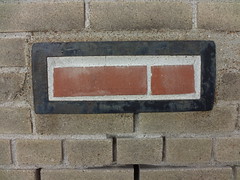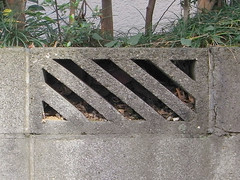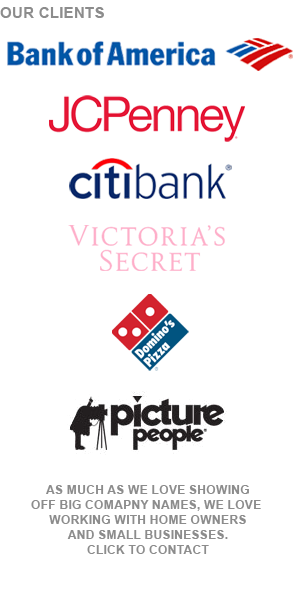Concrete block filler, made from resin and acrylic, is used for interior and exterior surfaces, so as to fill concrete blocks, cinderblocks, and precast concrete. This product provides a great base for application of latex, alkyd, enamel or epoxy paints on different types of surfaces. Many people do this process themselves, but the process is cumbersome and the DIY approach may yield unwanted results. Thus when using concrete block filler it’s better if you seek the help of a professional. He has all the items and the skills needed which can simplify the work greatly.
For a Free Estimate Call us at (650) 867-6077 or
Get A Quick AppointmentBenefits of using concrete block filler
There are many advantages to using concrete block filler. It provides exemplary resistance to moisture, and also boasts of great filling attributes. It can be used in deteriorated ceilings and walls with no problem. It can be used in poultry and meat plants as well.Due to its many uses people favor concrete block filler. Should you decide to use this material it’s best if you hire a professional who is knowledgeable in what he does.
Where to use concrete block filler
There are many places where you can use concrete block filler. It can be used in hospitals, schools, water treatment plants, sewage facilities, power plants, petroleum refineries, jails, paper mills, chemical plants, tunnels, bottling plants and dairy farms. Concrete block filler can also be used in equipment foundations, and the walls and ceilings made of industrial concrete.
Since concrete block filler is used in industries it’s best to hire a professional since he has all the special equipment needed to finish the task.
How professionals prepare concrete block filler
This special item needs special preparations, which can only be done by an expert. Before using concrete block filler, a professional will make sure that all the surfaces are clean. He will use a rag and cleaning solution to get rid of grease, foreign materials, oil, dirt and dust. He will also make use of sandpaper or a wire brush to remove the rust on the surface. With a clean surface, concrete block filler will adhere well.
For a new concrete or masonry surface, concrete block filler must undergo a substrate cure of 75 degrees Fahrenheit, for 28 days. A professional can only do this process. He will also remove laitance, salts, curing compounds, efflorescence and release agents on the surface either by sandblasting, mechanical scarification, muriatic acid etch, and shot blasting.
He will then rinse the surface well with a solution, pH 6-10 and let the surface dry before applying the concrete block filler.
For an old surface, the steps on preparing concrete block filler are similar, but the professional knows that chemicals, oils and grease must be removed first with a high-grade cleaning solution. Hardeners, old paint and release agents also need to be removed by shot blasting, sandblasting and mechanical scarification, which can only be done by experts. If there are rough surfaces caused by deterioration, he will make use of a heavy-duty concrete block filler to seal the crevices, cracks and bug holes on the material.
If there is mildew present on the surface, he will clean the area with a solution made of 1-quart bleach, 3 quarts warm water and 1/3 cup of detergent. A professional knows that ammonia shouldn’t be used. He has the protective equipment (goggles, mask, gloves and apron) needed when removing mildew prior to the application of concrete block filler.
Applying concrete block filler
Concrete block filler should be applied in the recommended condition – minimum of 55 degrees Fahrenheit, and maximum of 95 degrees Fahrenheit. These temperatures should apply to the material, surface, and even the air surrounding the area. The relative humidity in the room should be a maximum of 85%. A DIYer cannot attain these temperatures, making it one of the reasons why a professional should be called in for the job.
Methods of application
There are different ways of applying concrete block filler, and professionals have all the equipment needed for the application.
Before applying concrete block filler, a professional will purge spray equipment before using it with a reducer. Sometimes a reduction is needed and it must be well-matched with the application condition and the environment. A professional who has years of experience can do this easily.
An expert can also use an airless spray to apply concrete block filler will use the recommended pressure of 2000 psi. The hose should be ¼ to 3/8 inches, with a tip of .028 inches. The filter should be 30 mesh. With a professional you don’t have to worry about these dimensions because they have the equipment needed at hand.
As for a conventional spray, a professional can make use of his Binks 95 gun to apply concrete block filler. The fluid nozzle for this spray is 67, while the air nozzle is 67PD. The fluid pressure will range 20-25 psi, and the atomization pressure should be 50 psi. Reduction of as much as 12% by volume can be done as needed.
A professional can also use polyester or nylon brush to apply concrete block filler. A synthetic roller measuring 0.5 inch to 1.5 inches can be used. For these materials reduction is not advised. Several coats will be applied with a brush or a roller to make sure that the look is even and uniform.
Why it’s advantageous to hire a professional
• A professional who will use a spray to apply concrete block filler knows that it’s important to perform a 50% overlap as he goes with each layer. This will prevent him from missing pinholes and holidays.
• He knows it’s important to avoid too much reduction of concrete block filler, as it can change the adhesive properties, appearance and the film build of the material.
• For a smooth, pinhole-free surface, he will make sure to force the material into the bug holes and the pores with much force.
• He will avoid using the concrete block filler as immersion service or hydrostatic waterproofer.
• He will avoid applying concrete block filler over existing coats.
Concrete block filler has many uses, and only professionals with the needed equipment can perform this task well. If you want to use concrete block filler for your projects, call a trusted contractor right away.
For a Free Estimate Call us at (650) 867-6077 or
Get A Quick AppointmentSubmit your review | |



